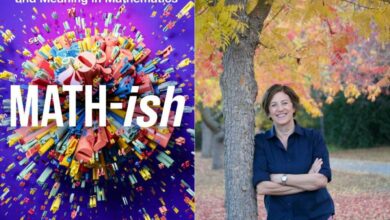There’s another generational divide in the U.S., and it’s happiness

People aged 60 and older in the U.S. reported high levels of well-being compared to younger people. In fact, the United States ranks in the top 10 countries for happiness in this age group.
Conversely, there’s a decline in happiness among younger adolescents and young adults in the U.S. “The report finds there’s a dramatic decrease in the self-reported well-being of people aged 30 and below,” says editor Jan-Emmanuel De Neve, a professor of economics and behavioral science, and the director of the Wellbeing Research Centre at Oxford University.
This drop among young adults is also evident in Canada, Australia and, to a lesser extent in parts of western Europe and Britain, too. “We knew that a relationship existed between age and happiness, but the biggest surprise is that it is more nuanced than we previously thought, and it is changing,” says Ilana Ron-Levey, managing director at Gallup.
“In North America, youth happiness has dropped below that of older adults,” Ron-Levey says. The rankings are based on responses from a representative sample of about 1,000 respondents in each country.
There are a range of factors that likely explain these shifts.
De Neve and his collaborators say the relatively high level of well-being among older adults is not too surprising. Researchers have long seen a U-shaped curve to happiness.
Children are typically happy, and people tend to hit the bottom (of the U) of well-being in middle age. By 60, life can feel more secure, especially for people with good health, financial stability and strong social connections. Living in a country with a strong social safety net can also help.
“The big pressures in life, [such as] having small children, a mortgage to pay, and work, have likely tapered off a bit,” De Neve says. But what’s so unexpected he says is the extent to which well-being has fallen among young adults.
“We would expect youth to actually start out at a higher level of well-being than middle-age individuals,” De Neve says.
“People are hearing that the world is going to hell in a handbasket and the young especially are feeling more threatened by it,” says John Helliwell, Professor Emeritus at the University of British Columbia, and a co-author of the study.
He says many younger people may feel the weight of climate change, social inequities, and political polarization which can all be amplified on social media.
But hope is not lost, Helliwell says.
He points to countries in eastern Europe where levels of well-being are on the rise among young people.
He says the older generations in the countries that make up the former Yugoslavia, tend to be less happy. “They are bearing the scars of genocide and conflict,” he says.
But he says the younger people are looking beyond this history. “A new generation can put it in the past and think of building a better future and feel that they can be part of that,” Helliwell says.
This story was edited by Jane Greenhalgh
9(MDAxOTAwOTE4MDEyMTkxMDAzNjczZDljZA004))




